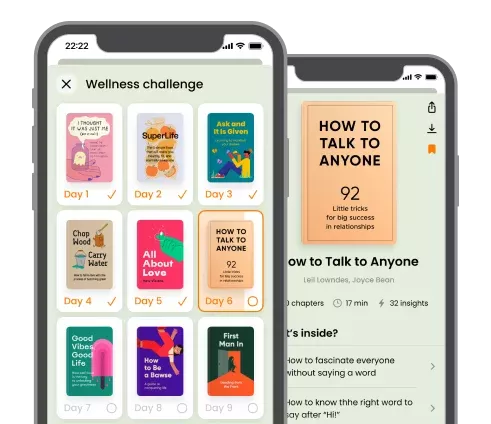7 Best Cognitive Psychology Books
Discover the fascinating world of cognitive psychology through a wide range of books that explore the mind, memory, perception, and more.
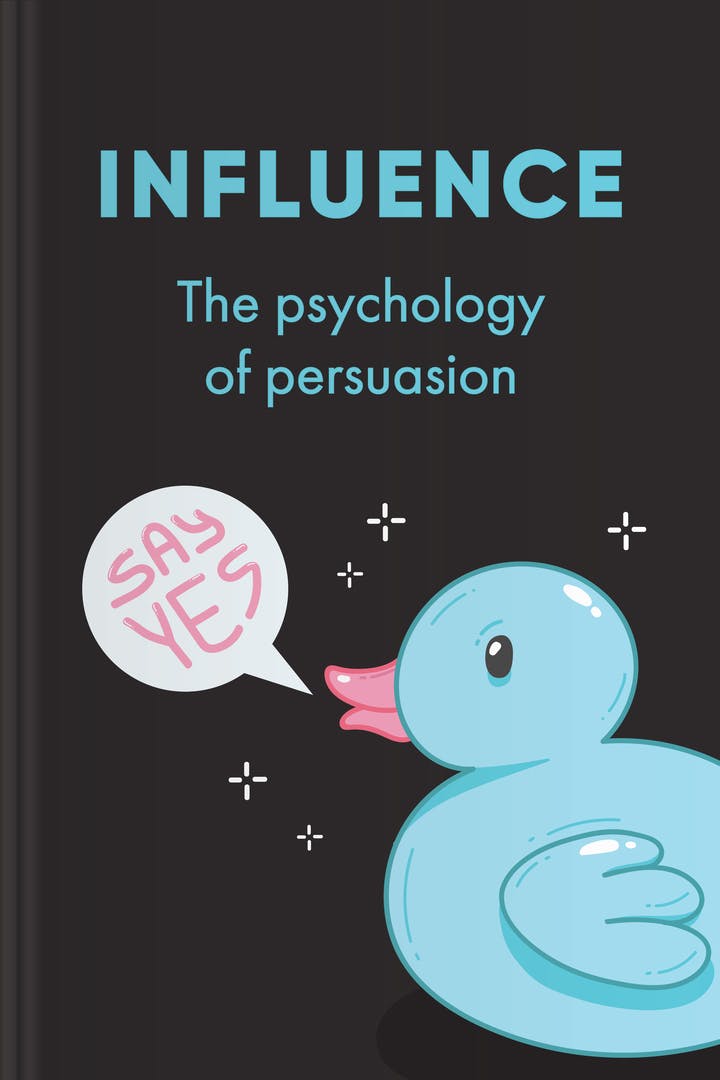 1
1Influence
by Robert Cialdini, Ph.D.
What is Influence about?
This book explores the fascinating world of persuasion and the psychological principles behind it. Drawing from extensive research, the author uncovers the six key principles that influence our decision-making processes. Through real-life examples and engaging anecdotes, readers gain valuable insights into how these principles are used in various contexts, from marketing and sales to personal relationships. A thought-provoking and eye-opening read that sheds light on the power of persuasion in our everyday lives.
Who should read Influence
Business professionals seeking to understand the science behind persuasion.
Salespeople looking to enhance their persuasive techniques and strategies.
Individuals interested in learning how to resist manipulation and influence.
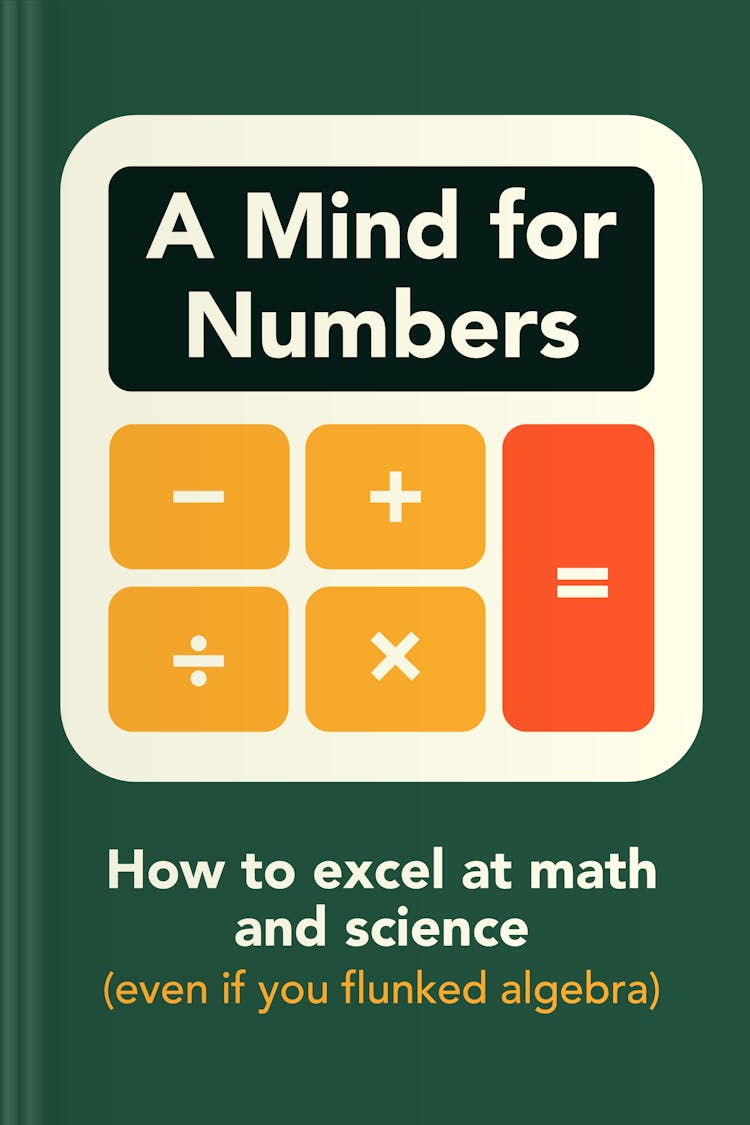 2
2A Mind for Numbers
by Barbara Oakley, Ph.D.
What is A Mind for Numbers about?
In this insightful guide, a renowned expert in learning strategies shares her secrets to mastering math and science. Barbara Oakley, Ph.D., reveals effective techniques to overcome common obstacles and develop a "mind for numbers." With practical tips, real-life examples, and engaging exercises, this book equips readers with the tools to excel in these subjects, regardless of their previous experiences or perceived abilities.
Who should read A Mind for Numbers
Students struggling with math and science concepts.
Professionals seeking to enhance their analytical thinking skills.
Educators looking for effective teaching strategies in math and science.
 3
3Don't Shoot the Dog!
by Karen Pryor
What is Don't Shoot the Dog! about?
In this insightful book, the author explores the revolutionary techniques of teaching and training using positive reinforcement. With a focus on animal behavior, Karen Pryor presents a comprehensive guide that can be applied to various aspects of life, from training pets to improving relationships. Through engaging anecdotes and practical advice, she emphasizes the power of positive reinforcement in shaping behavior and achieving desired outcomes, making this book a valuable resource for both animal trainers and individuals seeking effective teaching methods.
Who should read Don't Shoot the Dog!
Dog owners seeking effective and humane training techniques.
Animal trainers looking to enhance their teaching methods.
Educators interested in applying behavioral principles to human learning.
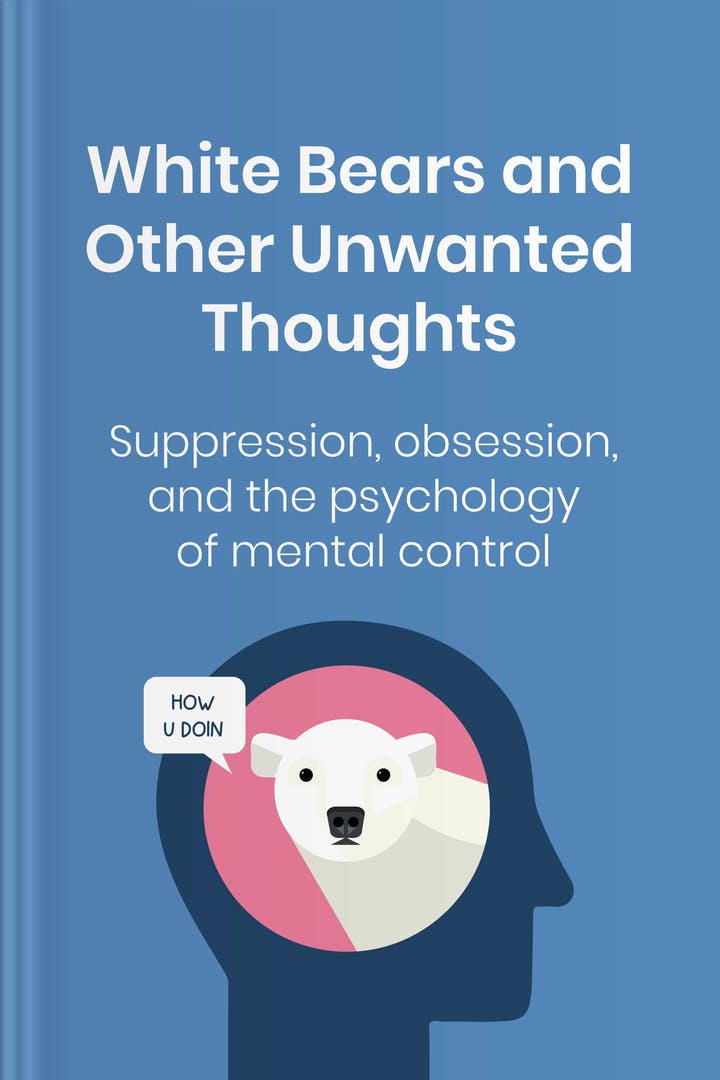 4
4White Bears and Other Unwanted Thoughts
by Daniel M. Wegner
What is White Bears and Other Unwanted Thoughts about?
In this thought-provoking book, the author delves into the fascinating realm of human psychology, exploring the intricate workings of our minds when it comes to suppressing unwanted thoughts. Through insightful analysis and compelling examples, Wegner uncovers the paradoxical nature of mental control, revealing how our attempts to suppress certain thoughts often lead to their persistence and even obsession. A captivating exploration of the complexities of our inner world and the power of our thoughts.
Who should read White Bears and Other Unwanted Thoughts
Individuals struggling with intrusive thoughts and seeking understanding and coping strategies.
Mental health professionals interested in the psychology of thought suppression.
Anyone curious about the complexities of human cognition and behavior.
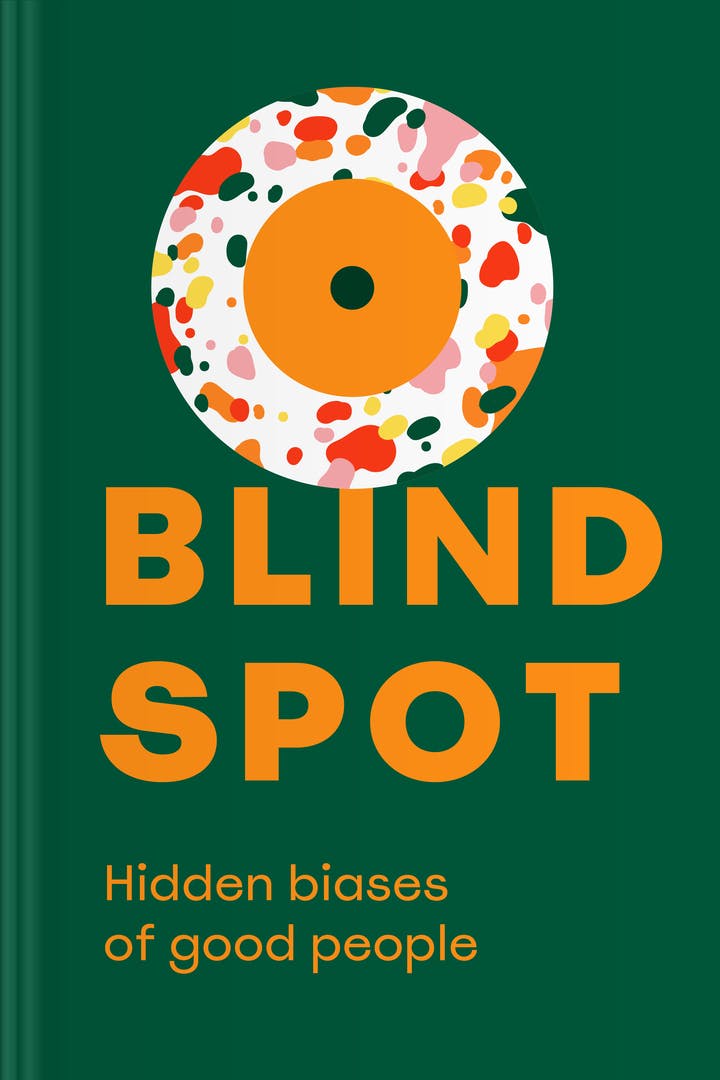 5
5Blindspot
by Mahzarin R. Banaji and Anthony G. Greenwald
What is Blindspot about?
"Blindspot: Hidden Biases of Good People" delves into the unconscious biases that exist within all individuals, regardless of their intentions or beliefs. Written by Mahzarin R. Banaji and Anthony G. Greenwald, this thought-provoking book explores the science behind implicit biases, shedding light on how they shape our perceptions, decisions, and actions. Through compelling research and real-life examples, the authors challenge readers to confront their own blindspots and strive for a more inclusive and equitable society.
Who should read Blindspot
Individuals interested in understanding and challenging their unconscious biases.
Psychologists and researchers studying implicit biases and human behavior.
Professionals seeking to create inclusive environments and reduce discrimination.
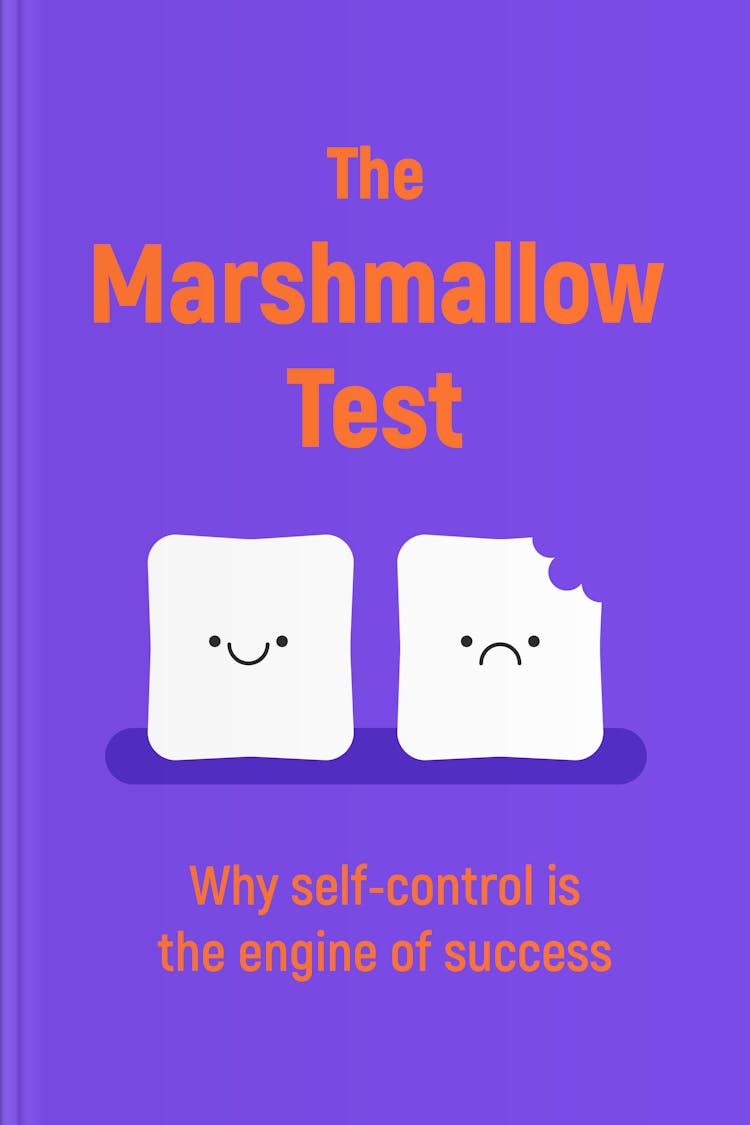 6
6The Marshmallow Test
by Walter Mischel
What is The Marshmallow Test about?
"The Marshmallow Test" explores the fascinating concept of self-control and its impact on our lives. Drawing on extensive research, the author delves into the psychological experiments conducted on children, revealing how their ability to resist immediate gratification predicts their future success. With insightful anecdotes and practical strategies, this book offers valuable insights into mastering self-control and making better decisions in various aspects of life.
Who should read The Marshmallow Test
Parents looking to teach their children about self-control.
Individuals seeking to improve their willpower and decision-making skills.
Psychologists and researchers interested in studying self-control and behavior.
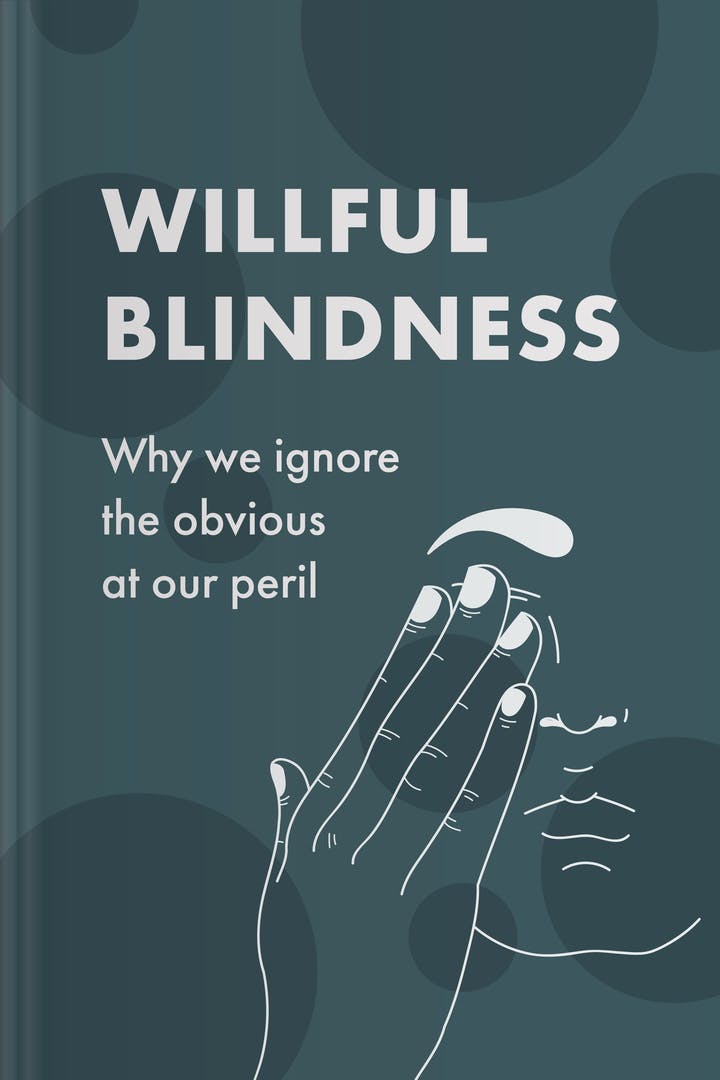 7
7Willful Blindness
by Margaret Heffernan
What is Willful Blindness about?
In this thought-provoking book, the author explores the concept of willful blindness and its consequences. Through a combination of real-life examples and psychological research, she delves into why individuals and organizations often choose to ignore the obvious, even when it poses significant risks. With compelling insights, Heffernan challenges readers to confront their own blind spots and offers strategies to overcome them, ultimately emphasizing the importance of embracing uncomfortable truths for personal and collective growth.
Who should read Willful Blindness
Business leaders seeking to understand the dangers of ignoring critical information.
Individuals interested in exploring the psychological factors behind willful ignorance.
Anyone looking to enhance their decision-making skills and avoid blind spots.
